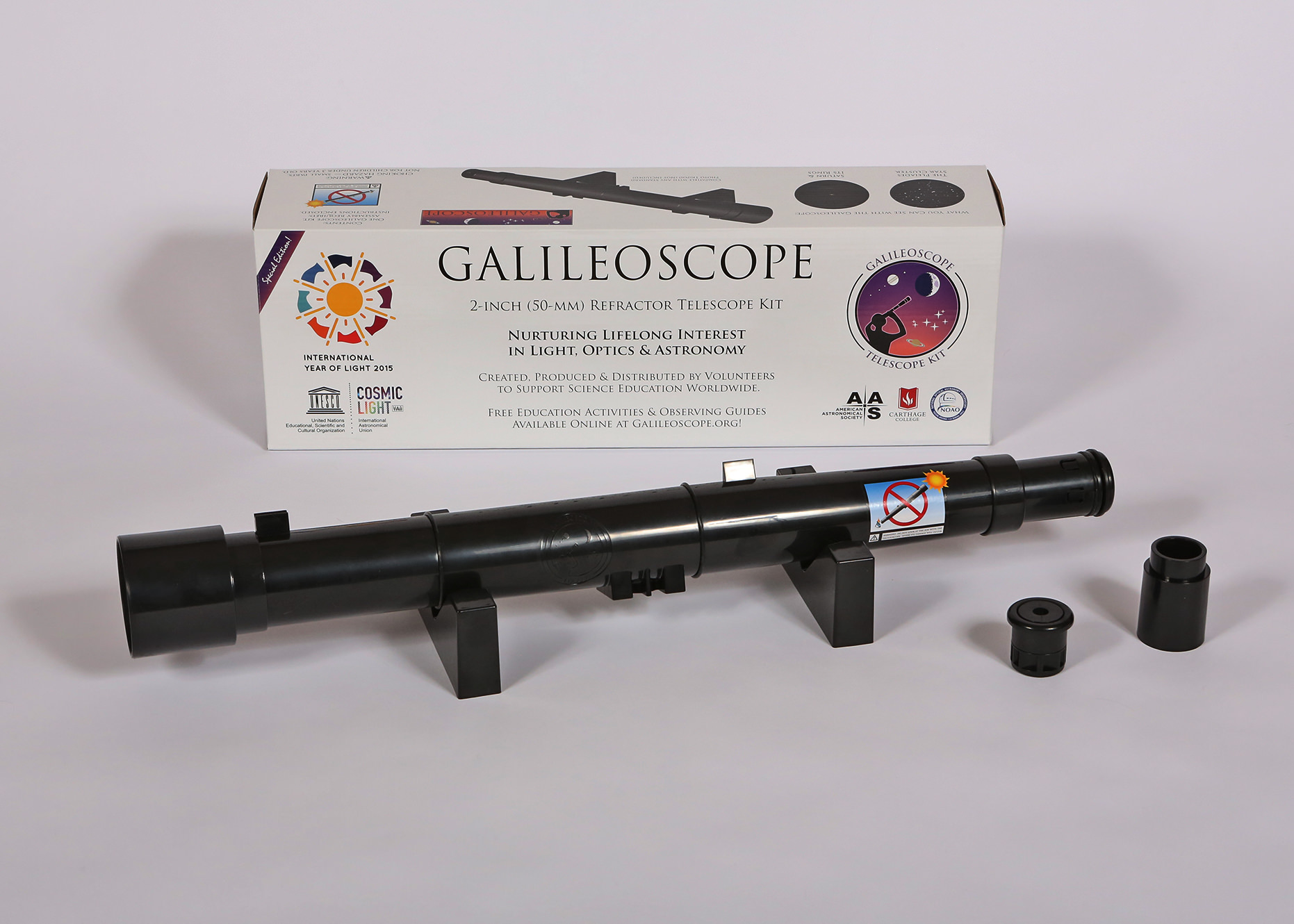Remember the wonderful Galileoscopes that were
developed in 2009
for the International Year of Astronomy? This high-quality, low-cost telescope kit is back for the 2015 International Year of Light (IYL), and new inventory is now available for delivery worldwide. Plus, thanks to generous donations to support science education, thousands of K-12 teachers and students in the United States could receive free telescope kits.
When the Galileoscope first came out in 2009, there was a waiting list to get one. But now, newly arrived IYL 2015 inventory is readily available and ready to be shipped.
"The new inventory takes us over the top of 250,000 Galileoscopes manufactured since the program began in 2009," said Rick Fienberg, from the American Astronomical Society, and one of the people who leads the volunteer effort to make these telescope kits available.
Galileoscope kits have been distributed in more than 100 countries for use in science teaching and public outreach. They are suitable for both optics education and celestial observation. They are available for purchase and for donation through the
Telescopes4Teachers program
.
You can buy a single Galileoscope for yourself
through distributors like Amazon
for about $50, or get
a wholesale price when buying in bulk and get 6 for $150.
[caption id="attachment_120259" align="aligncenter" width="580"]
A look at the components in the Galileoscope kit. Credit: Galileoscope. [/caption]
Fienberg told Universe Today's Tammy Plotner
in 2011
that the Galileoscope is extremely durable, and "is designed to be disassembled and reassembled repeatedly. This feature is essential for a product intended (at least in part) for classroom use — schools with limited funds are able to buy only a small supply of Galileoscopes and have to use them over and over again."
From personal experience, I know the Galileoscope is perfect for beginners – as well as seasoned astronomers! It gives you an observational experience like Galileo had -- except for having much, much better optics! You can get great, sharp views of things like lunar craters abd mountains, Jupiter's moons, Saturn's rings, the phases of Venus, and other bright celestial objects.
The Galileoscope is a 50-mm (2-inch) diameter, 25- to 50-power achromatic refractor. It attaches to any photo tripod. The Galileoscope comes unassembled so that students can explore fundamental optical concepts such as how lenses form images.
IYL 2015 is a global initiative adopted by the United Nations that promotes public understanding of the central role of light in the modern world, and to raise awareness of how optical technologies promote sustainable development and provide solutions to worldwide challenges in energy, education, agriculture, communications and health.
Find out more at the
Galileoscope website,
and at the
IYL website.
 Universe Today
Universe Today
